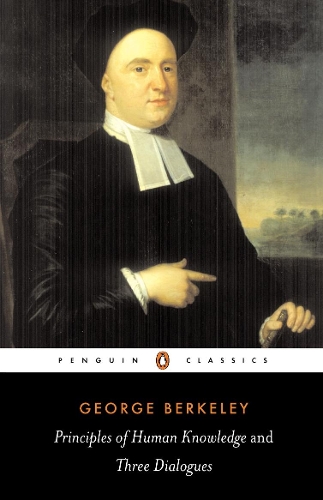
Principles of Human Knowledge and Three Dialogues
(Paperback)
Publishing Details
Principles of Human Knowledge and Three Dialogues
By (Author) George Berkeley
Introduction by Roger Woolhouse
Penguin Books Ltd
Penguin Classics
30th June 2005
25th February 1988
United Kingdom
Classifications
General
Non Fiction
192
Physical Properties
Paperback
240
Width 130mm, Height 198mm, Spine 15mm
184g
Description
One of the greatest British philosophers, Bishop Berkeley (1685 1753) was the founder of the influential doctrine of Immaterialism the belief that there is no reality outside the mind, and that the existence of material objects depends upon their being perceived. The Principles of Human Knowledge eloquently outlines this philosophical concept, and argues forcefully that the world consists purely of finite minds and ideas, and of an infinite spirit, God. A denial of all non-spiritual reality, Berkeley's theory was at first heavily criticized by his contemporaries, who feared its ideas would lead to scepticism and atheism. The Three Dialogues provide a powerful response to these fears.
Author Bio
Bishop Berkeley (1685-1753) was one of the greatest British philosophers. Roger Woolhouse Roger Woolhouse is a Professor in the Philosophy Department at York University. He has written extensively about philosophy in the seventeenth and eighteenth centuries - mainly focusing on metaphysics and the philosophy of science. He is currently working on Leibniz and on Spinoza.
